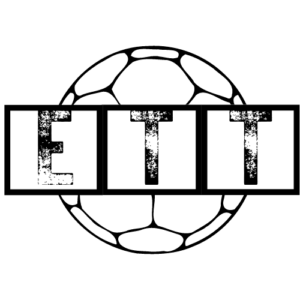Marcelo Bielsa is set to become the next head coach of the Uruguay national team. The appointment will see Bielsa become the third Argentina international to manage Uruguay.
The former Leeds United, Marseille, and Athletic Bilbao boss Marcelo Bielsa has reportedly agreed to take charge of La Celeste. The 67-year old manager has been the favorite of AUF (Uruguay Football Association) to lead the nation ahead of the next major tournaments after a woeful campaign at the 2022 World Cup. Such failure led to the resignation of Diego Alonso, the head coach.
However, Bielsa’s appointment appears to be causing some concern and dissatisfaction. As the South American football powerhouse, Uruguay should avoid hiring a foreign head coach, particularly from their own contenders and prioritize local talent instead. The former Chile boss, Uruguay-born Martin Lasarte, was among the critics. He said that he did not like having a foreign coach to take charge of Uruguay. Lasarte also believed that the local coach should have been given a chance to guide the team for a long-term project instead of bringing in an Argentine.
Such is understandable given the long history of rivalry between the two nations in football and beyond. It all dates back in the early twentieth century with football as a medium to express their cultural identity and nation’s pride. Uruguay is known for their garra charrua, the tenacious fighting spirit to face the impossible, while Argentina is deeply rooted to la nuestra, the elegant display of creativity and spontaneity to entertain the crowd.
Nevertheless, La Celeste is not always opposed to their neighbor. In fact, Marcelo Bielsa is not exactly the first Argentine to take reins of the team but already the third one in history. Fortunately, Bielsa’s football philosophy, with its aggressive pressing combined with ball possession, is more in line with the spirit of garra charrua. It remains to be seen whether he would succeed or follow his predecessor’s footsteps.
The notable Juan Hohberg
Juan Hohberg, the former La Celeste star in the 1954 World Cup and the head coach in World Cup 1970, was actually born in Argentina. The Cordoba-born forward moved to Uruguay in 1948 after his early ordinary spells in Central Cordoba and Rosario Central by joining Penarol. Hohberg eventually thrived in the neighboring country as he helped his team win six league titles before signing for Racing Club de Montevideo in 1959.
He only earned eight caps with La Celeste, but made the most of it by scoring three crucial goals in Switzerland – 1954. Hohberg netted twice in the semifinal against the ‘Mighty Magyar’ Hungary and scored another one in the third-place playoff while losing to Austria.
Hohberg rose to prominence again during his two short spells as a manager. In his first reign, He guided Luis Cubilla and Co. to reach the semifinal in the 1970 World Cup held in Mexico. They were eventually beaten by Pele and his golden team at the last four, plus defeated by West Germany in the third-place playoff. Yet, it was Uruguay’s best performance in the world cup after 1954 and the last one before Luis Suarez and Co. replicated their success at the 2010 World Cup.
In the second stint, Hohberg returned as a caretaker in 1977. He was only in charge of two friendly matches against Venezuela and Bolivia before subsequently being replaced by Raul Bentacor. Overall, the former Panathinaikos and Ecuador boss led Uruguay in 12 matches with just four wins and three draws.
The forgotten Daniel Passarella
Unlike Hohberg, the second Argentine manager for Uruguay was a true Argentina hero. Daniel Passarella was not only a regular player, but a star as well as the Albiceleste captain in the 1978 and 1982 World Cups. He was also the manager of Gabriel Batistuta and Co. in the 1988 World Cup before taking charge of Uruguay in 1999.
Ironically, the former River Plate and Parma boss brought nothing to La Celeste, who was the finalist of Copa America 1999 at that time. Despite having a better record than Hohberg with seven wins and four draws in 17 games under his tutelage, Alvaro Recoba and Co. played below par in the 2002 World Cup qualifiers. They even lost to China and Bosnia Herzegovina in the friendly matches. AUF soon dismissed Passarella in early 2001.

